“I had more to say with music than as a lyricist”: Robben Ford returns to instrumental music after 24 years
The virtuoso guitarist on playing with Miles Davis, letting his freak flag fly, and why he’s finally learned how to turn down in the studio.
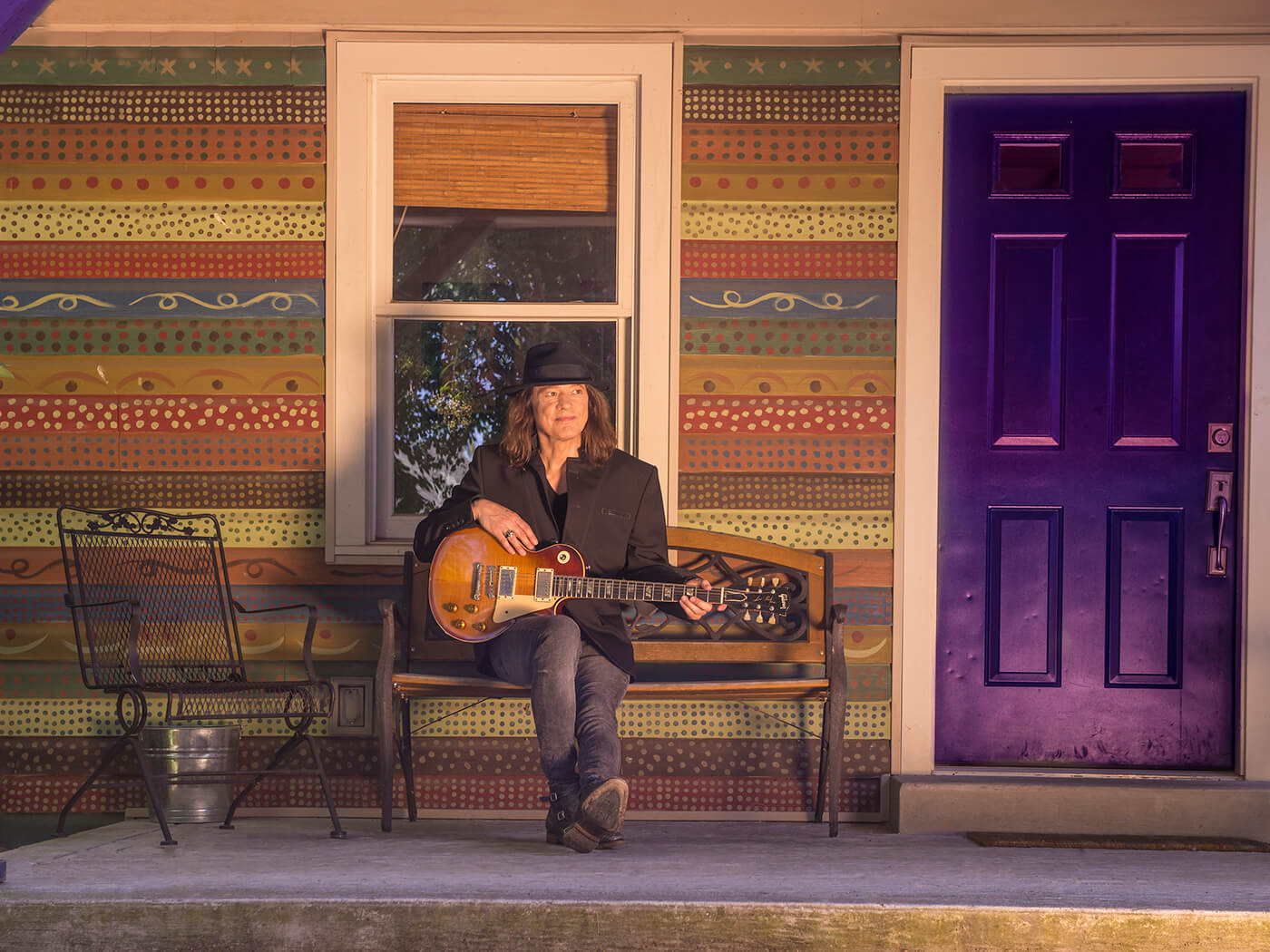
Image: Mascha Thompson
Since debuting with blues legend Charlie Musselwhite at the tender age of 18, Robben Ford’s career has seen him getting the call to play for everyone from KISS and Joni Mitchell to George Harrison and Bob Dylan, as well as becoming one of the most respected guitarists on earth.
We caught up with the man himself ahead of the release of his latest album, Pure to learn about the joys of layering vintage instruments in the studio, the challenges of creating a modern guitar album, the nerve-wracking experience of playing with Miles Davis, and why he’s made an instrumental album for the first time in over two decades.
Pure is your first instrumental record since Tiger Walk (1997) what prompted this return to instrumental music?
“I never sat down to make another instrumental record. I am a singer/songwriter/guitarist and my aim has always been to improve and evolve – to do something fresh.
“The last couple of years I made a couple of instrumental records with the sax player Bill Evans; The Sun Room was released, [and] the other was done at the start of 2020 which hasn’t come out yet. I love instrumental music – I’ve written a ton of it over the years! Having made those records, and also feeling like at that moment I had more to say with music than as a lyricist – I guess I wanted to push this other chop while it was up!”
What were your feelings going into this album?
“An instrumental record is a challenge – the guys that do it regularly are some pretty ferocious guitar players! I’m a blues-based player who studied the Micky Baker book and learned my chords and the people that I’m aware of – and I’m sure that there are so many more out there that I haven’t heard of yet – but guys like Steve Vai or Kurt Rosenwinkel who is just an insane guitar player… that’s a high bar to aim for!
“So here I am about to make an instrumental record and at least on the outset I can’t help but feel that I’m about to make a statement, I don’t know what it is yet but I want it to stand up to those standards, to get as close as I can to the best I can do.
“As the process goes on, that initial uncertainty starts to fall away and I start trusting what I do again. I was actually kind of scared when I first started this record – but the feeling of being myself and accepting what I do is one of the great lessons for me over the course of my life. The answer is always to relax man, be yourself!
“I always think those are good things to share – people can assume that you’re on top of the world but they may not know what goes on behind the scenes. I’m still just a person, we all are!”
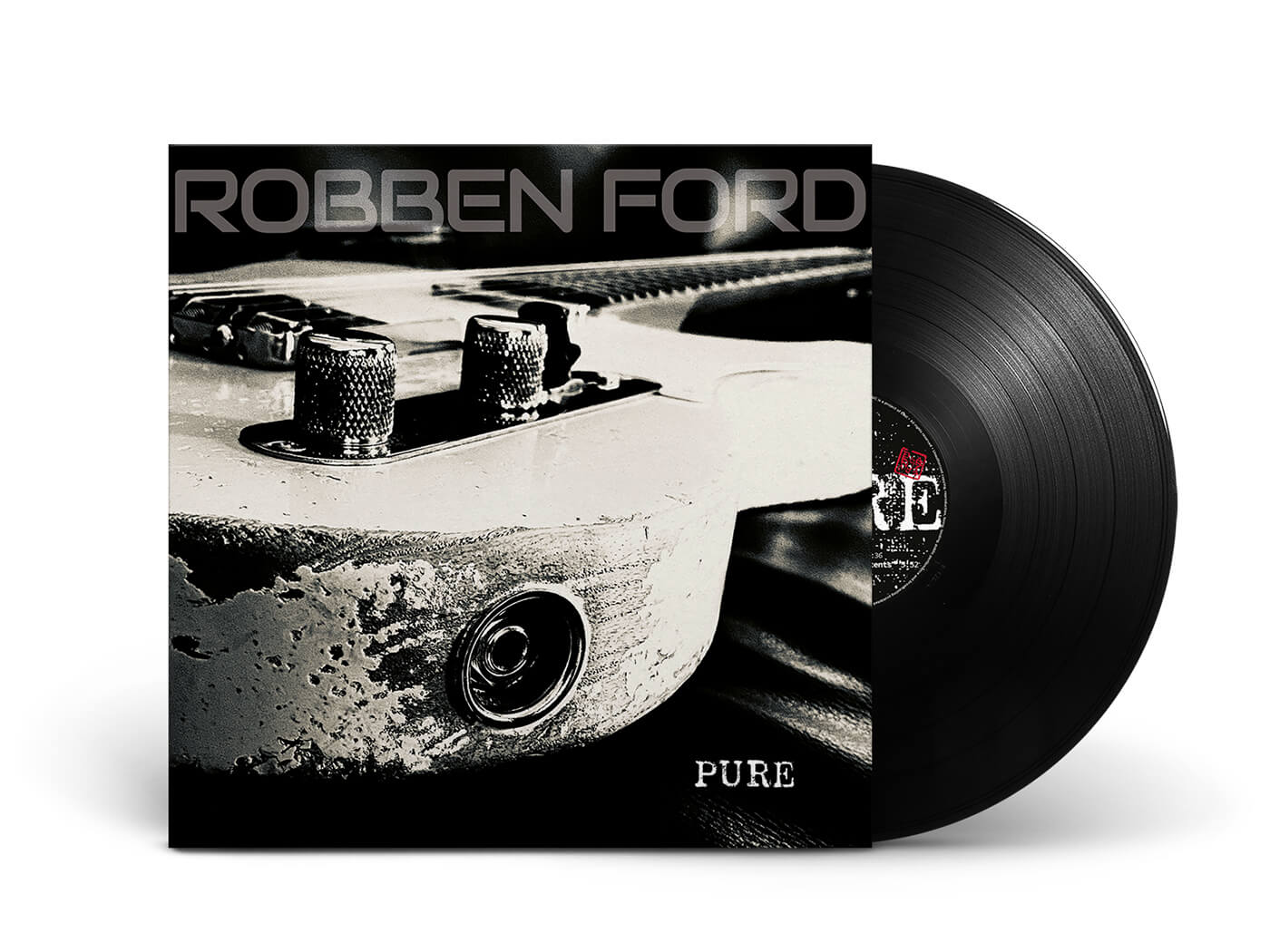
You are known for your expressive attack – a mix of bare fingers and a plectrum, tell us a bit about that.
“The use of fingers rather than a pick, or indeed hybrid picking – I guess that came from my love of Eric Gale [Aretha Franklin, Paul Simon, Diana Ross etc] he had such a fat sound, he played a big Gibson L5. To this day I don’t know exactly how he got that sound, but I found that if I used my fingers I could get close to it!
“There was no real technique in the early days, I would pluck the string with the finger nearest to it but that was about it! But I began to take more notice of the nuances – dynamics and hand position. I often play with my hand really close to the bridge, I love that sound! So it was never something I practiced, it was obvious, intuitive. So you start to make connections – if you want that sound do that! It’s a guitar, it’s a pick, put the two together and you’ll find it if you look! And then there’s the amp of course!”
You’ve often spoken of the importance of high volumes when it comes to creating a ‘horn-like’ lead guitar sound.
“Yes I have! And that would be almost 100 per cent true up until my last two albums, Purple House and this one. I had to learn how to record with smaller amps and still get a big sound. A slight digression but what normally happens when you track in the studio is the drummer goes into the live room and the guitar amp goes into an isolation booth, which means the guitarist experiences his own instrument through a pair of piddly little headphones. I just couldn’t stand that, so in the past I would insist on having my Dumble out in a big room cranked up almost like a live performance – that was my recorded sound!
“My experience with the last two records has taught me how to at least make a record, if not perform it live, using smaller amps and technically less volume. Different approaches you know?”
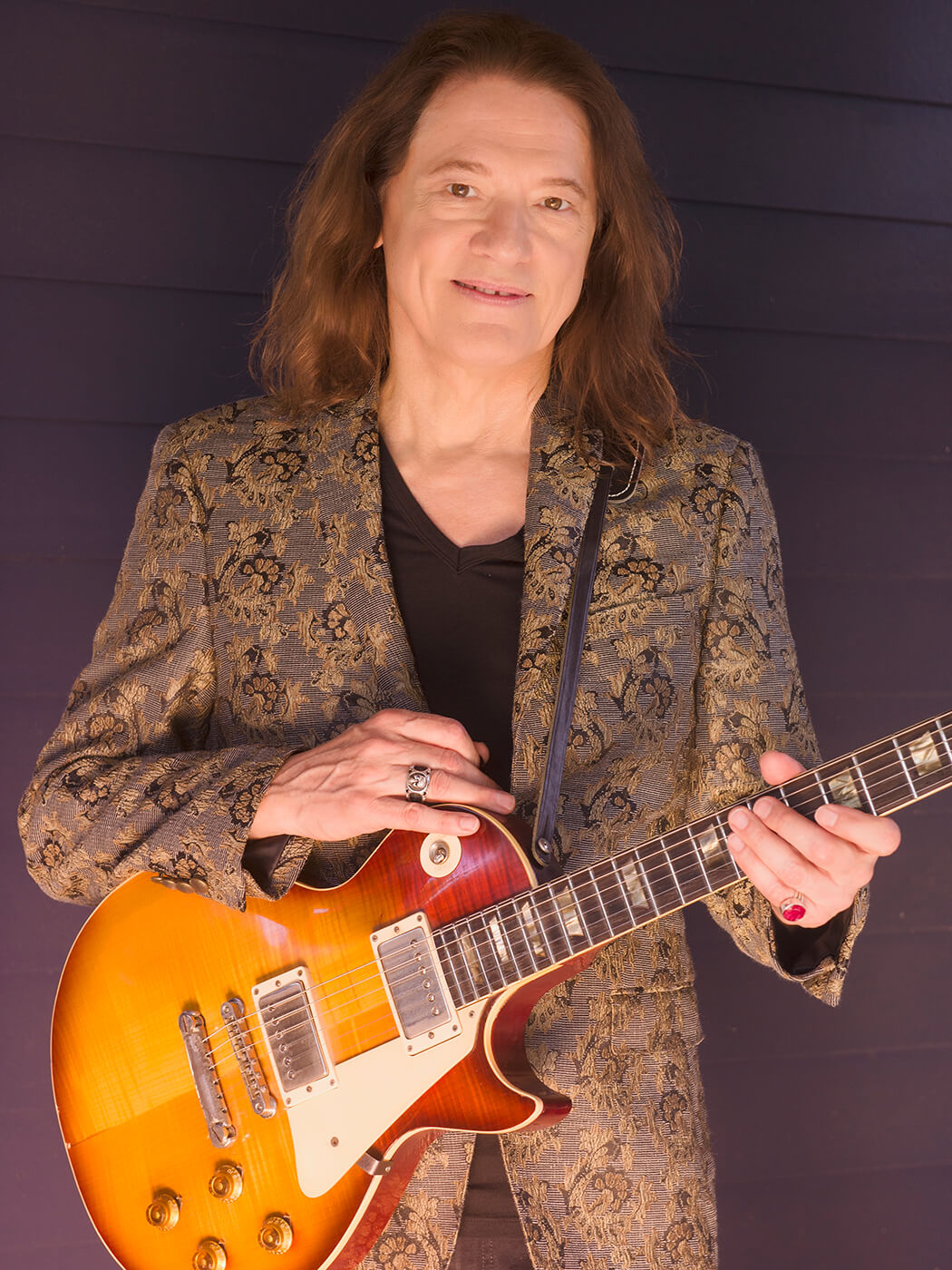
It sounds like the recording process for Pure was particularly rewarding!
“As you picked up on, we let our freak flag fly. When I say we I’m referring to myself and Casey Wosner who was my co-producer and engineer. I would start with some sort of rhythm track, a drum loop of some kind. Then I would lay down a synth bass and start playing some guitars – the tracks were built from the ground up like that!
“We would bring in a bass player so that we could have that real live energy although in some cases the synth is actually what you hear on the record. I’d then send the track to one of five different drummers who played on this record! We did, however, cut three songs on the album with a live band.
“It was an open process. One minute I could say, ‘Throw up a mic, let me put an acoustic on this thing’ and we’d experiment with microphone positioning. Mixing is a whole different process but we were sort of mixing as we went you know? Making sure the sounds would work as we recorded. This is the creative process is for me – trying your best, listening back to what you’ve played and asking, ‘Can that be better?’ There isn’t a single aspect of this record that wasn’t deeply considered.”
Pure opens with a very atmospheric prelude, a confusing but benevolent sonic world that introduces themes later explored in the title track.
“I love the idea of the opening of the record letting people know, ‘We’re not in Kansas anymore!’ It wasn’t the plan to start with a prelude – the improvised section in Pure for instance is basically a raga based on Indian scales – I listen to a lot of Indian music. I just couldn’t put people through that long improvisation right off the bat with no warning – I was worried I’d scare the shit out of everyone if we just kept going! And from that we drop right into that White Rock Beer Blues!”
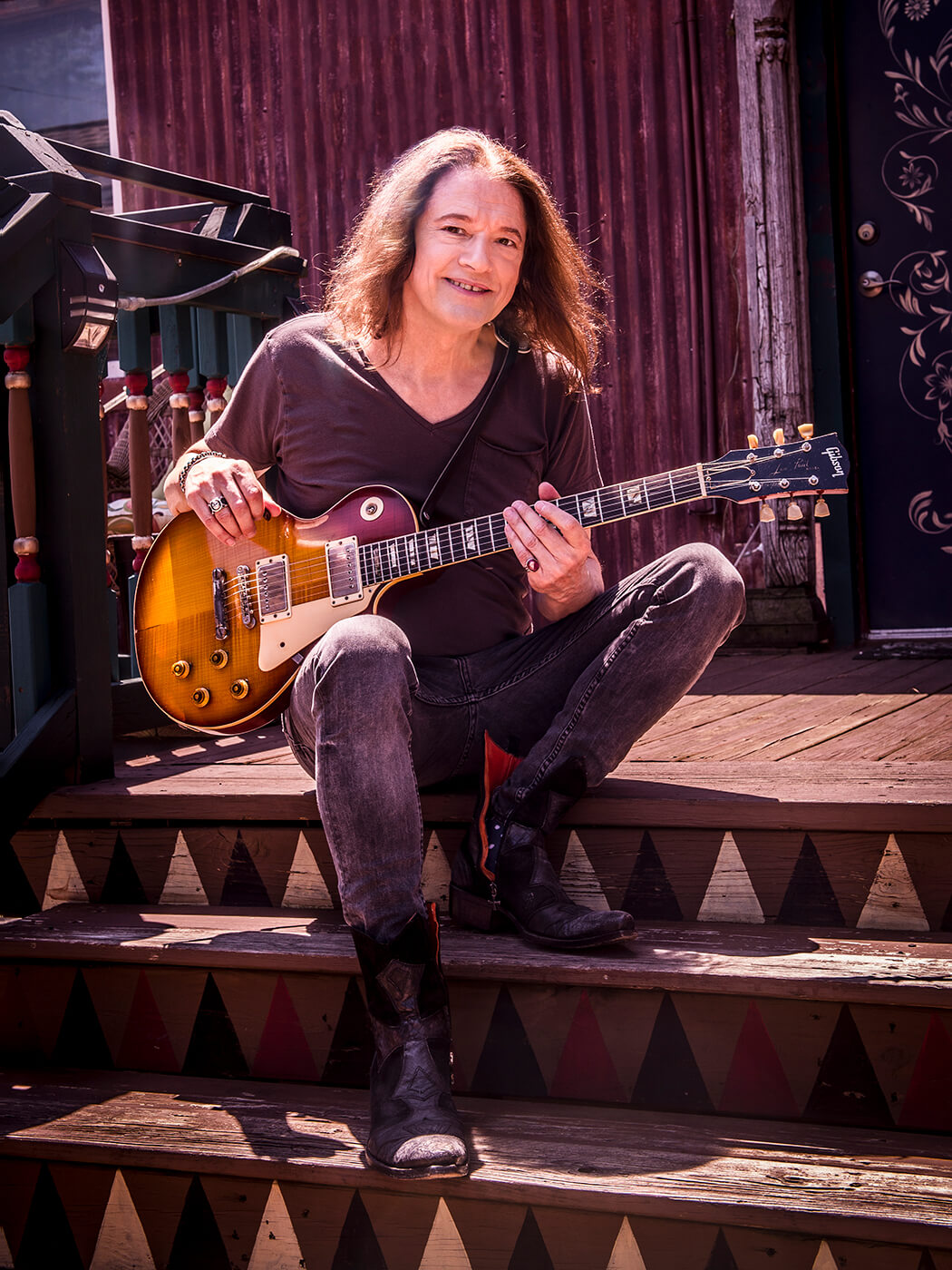
You are known for your love of vintage guitars, what did you use on this record?
“Well I used a lot of different things! I have a ’64 all chopped up Gibson SG – the pickups aren’t original on that one but they’re great. The headstock on that guitar mystifies everyone because it was also modified. Fundamentally that guitar just sounds fantastic and I was running it through a 15-watt Little Walter amplifier called The King Arthur. I also used a 50-watt Little Walter head into a single 12-inch cabinet of some sort – super cranked up with some kind of an overdrive on there too. Probably a (Hermida) Zen Drive.”
“White Rock Beer Blues is a Gibson R8 with real PAF pickups and that was performed live on Instagram from beginning to end. We let them know, Robben’s going to play this song and that’s what’s going on the record! Live!”
Did that add any pressure?
“Oh yeah definitely! But it made it a live performance and that is what matters. I used my Dumble overdrive special for that. Balafon was played on a ’64 Gibson 355 – just a beautiful guitar. Most of those parts were cut using the Little Walter 50-watt head again. There’s an acoustic guitar on there and a ’52 and a ’60 Tele that play that twangy riff – so that riff was tripled in fact, played on those three guitars so we could blend the sounds to get the texture I was looking for.
“Blues for Lonnie Johnson was done on the same day in the same way! I played a PRS on that track, in fact it’s an instrument that Paul [Reed Smith] and I have been working on which is at the later stages of the development process.”
Is there a personality switch when you change guitars?
“Well, I don’t know if it’s personality as such but there’s certainly a shift in attitude. You might become a little bit more aggressive or gentle depending on the guitar. Different aspects and feelings certainly come out. With the Tele I just feel funkier – it’s difficult to explain!
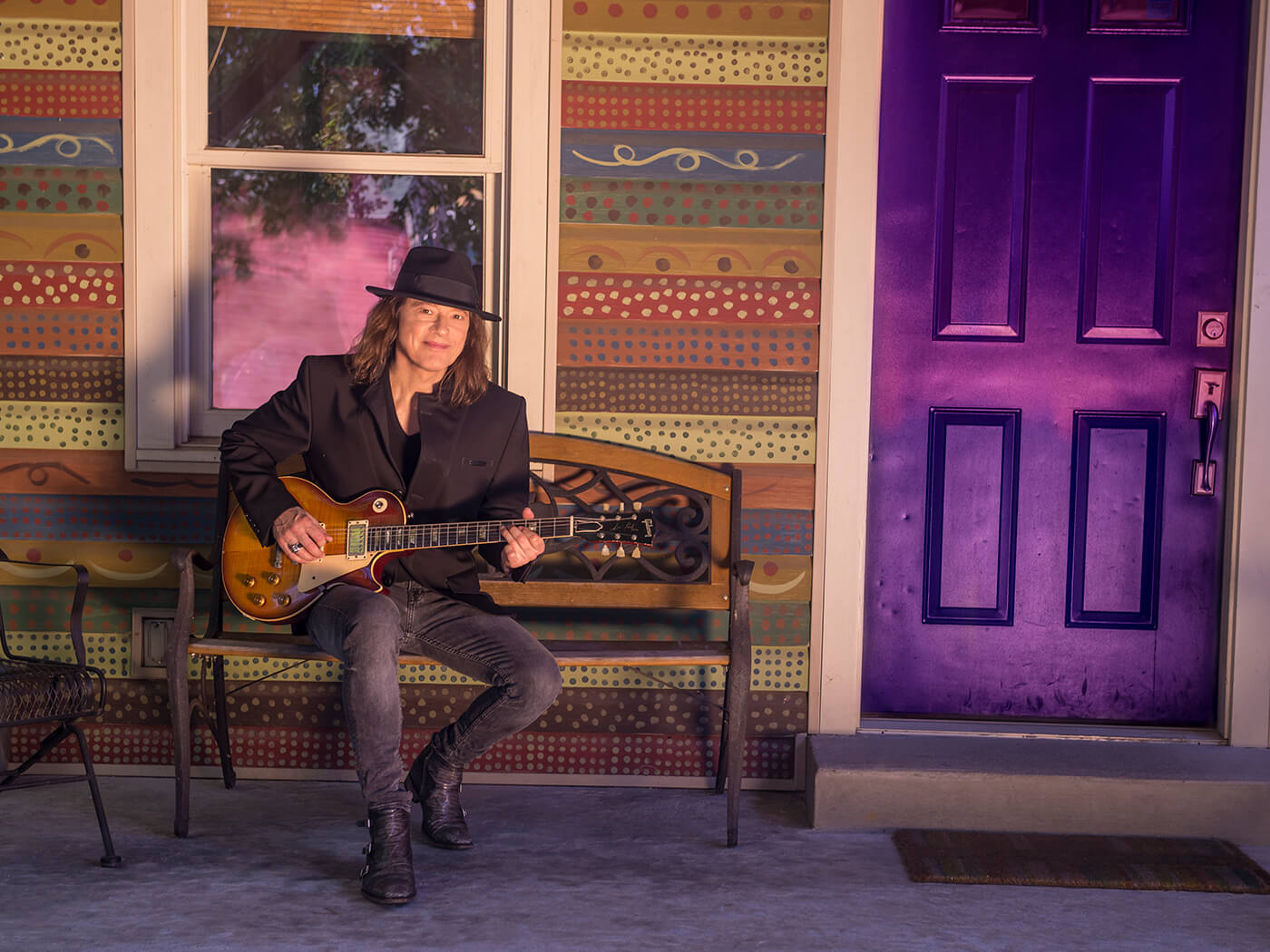
You recently set up a tuition platform, The Guitar Dojo.
“Well, this was a project that started life on the Truefire channel about a year ago but we decided to create our own platform, which is a huge step up in terms of the look and the quality of content. There are two membership levels and even at its most basic it includes a tonne of content – interviews with great guitar players, all manner of musicians in fact. The dojo site is open and the first interview is with Joe Robinson which is very cool.
“There is a load of tuition available with new lessons going up every week and on the gold level I also do a live stream performance as well as a live Zoom get-together. It’s a lot of fun.”
Finally, you are one of a handful of guitarists who played and recorded with Miles Davis, what was that like?
“I never thought in my life that I would be playing with Miles Davis, it never occurred to me! Miles was making the TUTU record and Tommy LiPuma the producer who I’ve worked with a lot over the years, was asked if he knew any guitar players. Tommy immediately recommended me and said, ‘Miles is going to call you’ so for the next three days every time the phone rang I would jump.
“To start with I was sent three live recordings, some charts that had obviously been photocopied 100,000 times and were hard to work with! So I listened to the music for 10 days, referenced the charts as much as they helped me and went out and played my first show having met the band for the first time in the lobby of the hotel a couple of hours earlier and Miles himself just before the show!
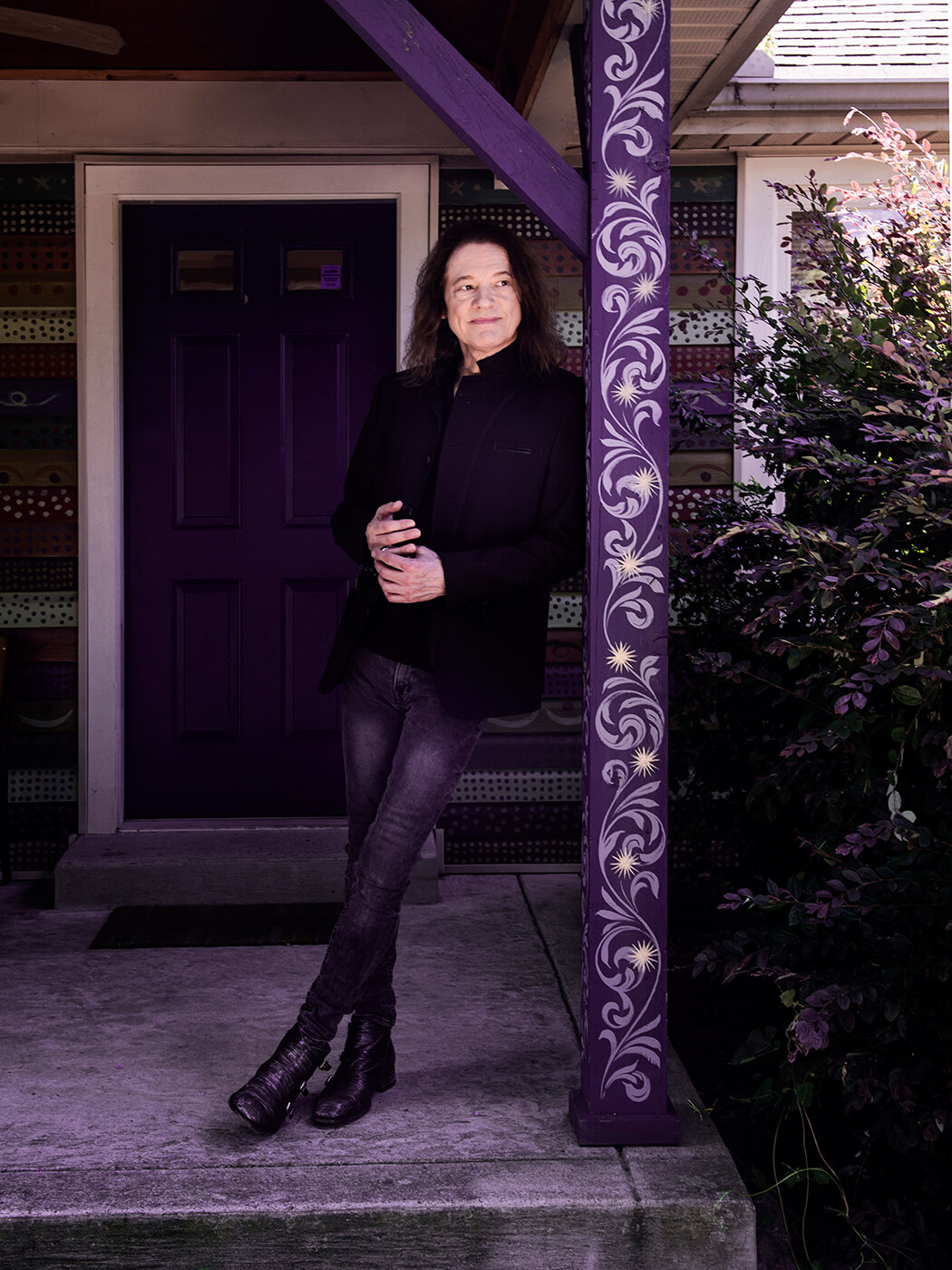
“I was sick, literally, with terror. I had to lay down in the back of the van from the hotel to the venue because I thought I was going to lose it. I met Miles backstage and, well, he was frigging Miles Davis! You know? We went onstage, I played, did the best I could. I remember looking up at him after my first solo and he had a big smile on his face and said, ‘Damn!’ So that made me feel good but still I was just in knots the whole time. The music was very intense on the bandstand too.
“The next night we were on the bill with BB King in New York City and I had to talk to myself in the mirror, not something I do often, I remember saying to myself, ‘Man, you gotta relax, this is sink or swim’. So I made up my mind to play as if I’d been in that band for years.
“Miles would call me on the phone out of the blue. ‘Robben, what you doin’?’ You know, you never felt more white than when you’ve got Miles Davis on the other end of the phone! He’d play live recordings of shows down the phone, my guitar solos, all exploding and distorted from the landline – and he’d say ‘You’re playing your ass off!’. I’m still trying to do that!”
Pure is out now on EarMusic.
